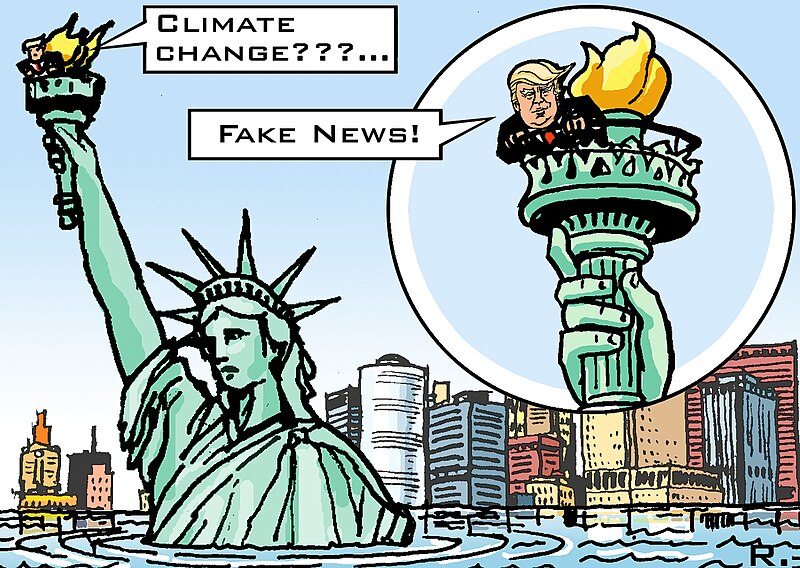Climate Change: The Fundamentals
The concept of global warming was created by and for the Chinese in order to make U.S. manufacturing non-competitive.— Donald J. Trump (@realDonaldTrump) November 6, 2012
In having a conversation about climate change, one often encounters several tangential themes -- domination of the developed countries over the developing ones; economic agenda; political propaganda; religious oppression; corporate greed -- in short, the use of the climate crisis by a particular group of people for furthering their own agenda, irrespective of ground reality. Some of these themes are perfectly valid, some only partially so, and some are outrightly ridiculous. However, the one thing I notice every single time is that the "theme" of the conversation soon steers far away from the science.
This could be because of several reasons:
- The person does not understand science, and hence wants to skip that
- The person partially understands the science, but prioritises other perspectives above science to understand the climate crisis and its consequences
- The person completely understands the relevant science and wants to use this understanding to solve other issues apart from the climate crisis
Of course, it is futile to engage with the first group. They don't understand the science, they don't want to, and they still think they deserve a seat on the discussion table. The only unfortunate reason they are relevant to the climate crisis is that their actions affect all the others too.
 |
| Source: Wikimedia Commons |
The third group is extremely rare to find, and I have tremendous respect for them. Please note, I do not mean that one must know all about climate science to apply it elsewhere -- but it's usually quite easy to recognise people who have a good foundation of the basic science and a scientific approach to problem solving. Such people are pivotal in providing solutions to several problems that arise / are intensified due to climate change -- including socio-economic problems, medical problems, policy-making for complicated situations, etc.
The trouble is that the large majority of voices in the climate discussion tend to belong to the second group. And every time someone brings in alternative perspectives before understanding the science, it not only dilutes the whole conversation but usually adds so much confusion that we stray farther away from a solution!
I cannot over-emphasise this : we cannot solve the climate crisis without understanding the science behind it. Also, false / incomplete knowledge is a dangerous thing.
If you want to be a voice of reason in the chaotic climate conversation, there are 3 fundamentals that are absolutely necessary to understand:
- Greenhouse Gases - what exactly is the problem?
- Natural vs Anthropogenic Climate Change - what's creating this problem?
- Future Climate Change Scenarios - what's going to happen?
These concepts form the foundation for understanding the climate crisis and must not be skipped before jumping to other conclusions. Also, these are the most incontrovertible concepts of the climate conversation backed by solid scientific consensus from across the world. Note that this list is not exhaustive, but I urge you to solidify your understanding of these concepts before jumping to more advanced ones.
Since scientific articles tend to be complicated, this is my attempt to simplify the science and place relevant information in one place in an accessible manner. Any feedback related to making the content more easy to understand would be appreciated. This climate conversation will follow some basic rules:
Rule 0 : No name-calling.
Rule 1 : Use authentic scientific sources.
Rule 2 : Focus on the science first, then the consequences.
Rule 3 : Remove unnecessary variables.
Rule 4 : Admit what you don't know.
Rule 0 : No name-calling.
Rule 1 : Use authentic scientific sources.
Rule 2 : Focus on the science first, then the consequences.
Rule 3 : Remove unnecessary variables.
Rule 4 : Admit what you don't know.
-----
To subscribe to such posts, please click here.


Comments
Post a Comment